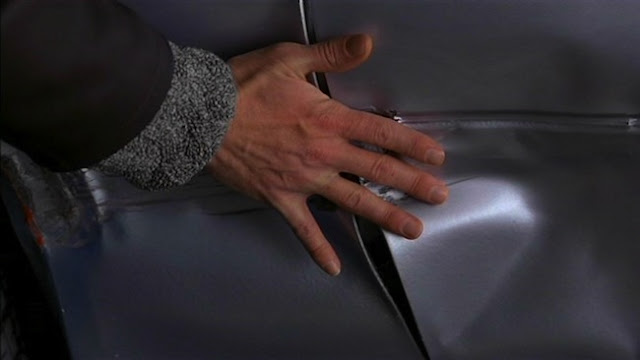"Cookie's Fortune": Robert Altman interview
Cookie's Fortune, a deep South-set gem with a tender, melancholic heart, is a sweet treat from often-caustic veteran director Robert Altman. At 74, Altman limps from recent knee surgery, but his acerbic perspective on the film industry hasn't mellowed.
Here's the plot behind its portrait of regional culture, in the form of overlapping blood and color-blind friendships in tiny Holly Springs, Mississippi: the magnificent Patricia Neal is Cookie Orcutt, a curmudgeonly yet tender-hearted widow whose life, after the death of her husband, Buck, has been kept together by Willis (Charles S. Dutton). Cookie's relatives include greedy niece Camille (a gleefully batty Glenn Close), rehearsing an Easter pageant based on Oscar Wilde's "Salome," and her sister, seemingly simple-minded Cora (Julianne Moore). Altman can't help but provide that pair with the same yellow Pinto driven by the birdbrains of his 3 Women, yet Anne Rapp's deadpan, oft dead-on script is filled with sly permutations on audience expectation. (Other actors on hand who are seldom given the chance to be this good include Liv Tyler and Chris O'Donnell as two lusty young lovers and Ned Beatty, a sheriff who knows Willis can't be a criminal. Why? "Because... I fish with him.")
Rapp, a longtime script supervisor who studied writing with Barry Hannah, met Altman, a racetrack buddy of her ex-husband, and started writing scripts with him. Rapp's script is smart enough to suggest, but never to declaim, a half-dozen levels of contemporary reference and satire, enriching Altman's customary great skills with performers and milieu. I've seen it twice in two months, and it gets better the more I reflect. Altman's back on top of his game.
Altman has great hopes for Cookie's Fortune. But of his previous, The Gingerbread Man, Altman says, "Well, it's criminal, their treatment of that film. Those guys have all been fired, Polygram is moving over with the company that's doing this, and they have promised me that if this film is successful, they'll give me a small re-release of The Gingerbread Man. There was a vindictive order from the guy who was running that, he was so pissed off with me, he literally told them, 'I want that movie killed.' We have evidence, we're still talking to lawyers, but it's almost impossible to win a lawsuit. You can't prove what a film could have done. They were just pissed off because it didn't test the way they wanted it to with the teenagers, y'know, in those malls."
Is there a lesson there? "It's like a kid, you walk down the street, at a certain corner, some bully would come out and beat the shit out of you! But you kept going by. I'm very proud of the picture. It was exactly what we set out to do. The lead was a flawed character and they wanted a hero."
The year 2000 marks the twenty-fifth anniversary of the release of Nashville, another film he hasn't let go of. "My office is desperately trying to get the film re-released, but nobody can find out who owns it. These titles [of ownership] change; ABC made it also we think Disney owns it and Disney's not much interested in anything except business." A pause. "It's one of those films where everything worked. I love that film."
Altman sees his career as continuous, rather than a series of comebacks. "I've had journalists say, and I don't mean you, I mean the genre..." He offers a sly smile above his gray goatee, "'God, how bad was it those six years you couldn't work?' Well, I've never had a time when I didn't have a film that was of my own choosing. But they're not all Nashville, The Player or M*A*S*H. I've done thirty some-odd films, and you tend to love your least successful children most."
Of the 1970s, oft-mentioned as a golden era, Altman's quick to pounce on one subject: "Well, it was a golden time. There was a lot more creativity allowed. But now, if you see anything original, you won't see it [out there for] very long. It's time turtling on. These kids... they don't understand anything else. There's so much saturation. There's not a policeman today who didn't learn his behavior from watching films or television. We all imitate each other."
Does he ever think he's imitating himself? "It now occurs to me they're all chapters of the same book. My fingerprints are all over them. Whatever I do, I can't not do it."
But of the warm sense of community in Cookie's Fortune that seems ultimately hopeful about race relations, Altman only raises an eyebrow about implications outside of the story, out in the contemporary world of racial strife and ethnic cleansing. "I don't think racism will resolve until everybody's beige, y'know." [Originally published in Spokane's Inlander, 22 April 1999.]
Here's the plot behind its portrait of regional culture, in the form of overlapping blood and color-blind friendships in tiny Holly Springs, Mississippi: the magnificent Patricia Neal is Cookie Orcutt, a curmudgeonly yet tender-hearted widow whose life, after the death of her husband, Buck, has been kept together by Willis (Charles S. Dutton). Cookie's relatives include greedy niece Camille (a gleefully batty Glenn Close), rehearsing an Easter pageant based on Oscar Wilde's "Salome," and her sister, seemingly simple-minded Cora (Julianne Moore). Altman can't help but provide that pair with the same yellow Pinto driven by the birdbrains of his 3 Women, yet Anne Rapp's deadpan, oft dead-on script is filled with sly permutations on audience expectation. (Other actors on hand who are seldom given the chance to be this good include Liv Tyler and Chris O'Donnell as two lusty young lovers and Ned Beatty, a sheriff who knows Willis can't be a criminal. Why? "Because... I fish with him.")
Rapp, a longtime script supervisor who studied writing with Barry Hannah, met Altman, a racetrack buddy of her ex-husband, and started writing scripts with him. Rapp's script is smart enough to suggest, but never to declaim, a half-dozen levels of contemporary reference and satire, enriching Altman's customary great skills with performers and milieu. I've seen it twice in two months, and it gets better the more I reflect. Altman's back on top of his game.
Altman has great hopes for Cookie's Fortune. But of his previous, The Gingerbread Man, Altman says, "Well, it's criminal, their treatment of that film. Those guys have all been fired, Polygram is moving over with the company that's doing this, and they have promised me that if this film is successful, they'll give me a small re-release of The Gingerbread Man. There was a vindictive order from the guy who was running that, he was so pissed off with me, he literally told them, 'I want that movie killed.' We have evidence, we're still talking to lawyers, but it's almost impossible to win a lawsuit. You can't prove what a film could have done. They were just pissed off because it didn't test the way they wanted it to with the teenagers, y'know, in those malls."
Is there a lesson there? "It's like a kid, you walk down the street, at a certain corner, some bully would come out and beat the shit out of you! But you kept going by. I'm very proud of the picture. It was exactly what we set out to do. The lead was a flawed character and they wanted a hero."
The year 2000 marks the twenty-fifth anniversary of the release of Nashville, another film he hasn't let go of. "My office is desperately trying to get the film re-released, but nobody can find out who owns it. These titles [of ownership] change; ABC made it also we think Disney owns it and Disney's not much interested in anything except business." A pause. "It's one of those films where everything worked. I love that film."
Altman sees his career as continuous, rather than a series of comebacks. "I've had journalists say, and I don't mean you, I mean the genre..." He offers a sly smile above his gray goatee, "'God, how bad was it those six years you couldn't work?' Well, I've never had a time when I didn't have a film that was of my own choosing. But they're not all Nashville, The Player or M*A*S*H. I've done thirty some-odd films, and you tend to love your least successful children most."
Of the 1970s, oft-mentioned as a golden era, Altman's quick to pounce on one subject: "Well, it was a golden time. There was a lot more creativity allowed. But now, if you see anything original, you won't see it [out there for] very long. It's time turtling on. These kids... they don't understand anything else. There's so much saturation. There's not a policeman today who didn't learn his behavior from watching films or television. We all imitate each other."
Does he ever think he's imitating himself? "It now occurs to me they're all chapters of the same book. My fingerprints are all over them. Whatever I do, I can't not do it."
But of the warm sense of community in Cookie's Fortune that seems ultimately hopeful about race relations, Altman only raises an eyebrow about implications outside of the story, out in the contemporary world of racial strife and ethnic cleansing. "I don't think racism will resolve until everybody's beige, y'know." [Originally published in Spokane's Inlander, 22 April 1999.]

